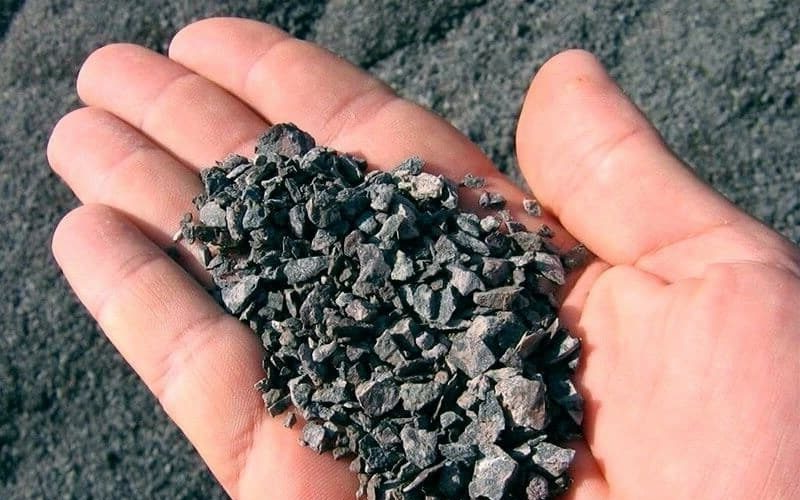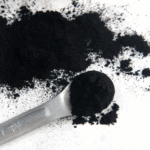Use of Cementing Grade Gilsonite in Oil Well Cementing
Cementing grade Gilsonite is a naturally occurring hydrocarbon resin used extensively in oil and gas well cementing operations. Due to its lightweight, high-carbon content, and sealing ability, Gilsonite enhances the performance of cement slurries, especially in high-pressure and high-temperature (HPHT) conditions.
It plays a critical role in improving well integrity, reducing fluid loss, and preventing formation damage.
Cementing Grade Gilsonite is a specialized form of Gilsonite, a natural asphalt product that is used as an additive in cementing operations. It is known for its unique properties that enhance the performance of cement slurries. Let’s explore the features, benefits, and applications of Cementing Grade Gilsonite.
What Is Cementing Grade Gilsonite?
Cementing grade Gilsonite is a finely ground, naturally occurring bitumen that is chemically inert, hydrophobic, and thermally stable. When added to cement, it:
-
Improves slurry bonding and reduces permeability
-
Helps control lost circulation
-
Strengthens the cement sheath for better zonal isolation
Its unique properties make it suitable for:
-
Primary cementing
-
Remedial cementing
-
Loss circulation control
Benefits of Using Gilsonite in Oil Well Cementing
1. Reduced Slurry Density
Gilsonite lowers the cement slurry weight, making it ideal for weak formations that cannot tolerate heavy loads.
2. Improved Zonal Isolation
By enhancing the bond between casing and formation, Gilsonite helps prevent gas migration and channeling.
3. Enhanced Flexibility
The natural elasticity of Gilsonite improves the shock resistance of cement under thermal and pressure cycles.
4. Loss Circulation Control
Gilsonite’s sealing properties help plug fractures and porous zones, reducing non-productive time.
5. Compatibility
It is compatible with other additives like retarders, dispersants, and fluid loss agents.
Improved Cement Slurry Fluidity and Stability:
When Cementing Grade Gilsonite is added to cement slurries, it improves their fluidity and stability. It acts as a dispersant, reducing the viscosity of the slurry and allowing for better fluid flow. This enhanced fluidity helps in achieving better cement placement and reduces the risk of incomplete displacement of drilling fluids or other formation fluids. The improved stability of the slurry ensures that it maintains its desired properties over time, preventing settling and separation.
Increased Cement Bond Strength:
Cementing Grade Gilsonite enhances the bond strength between the cement slurry and the wellbore or formation. It forms a thin film around the cement particles, providing better adhesion and cohesion. This results in a stronger bond between the cement and the surrounding surfaces, reducing the likelihood of cement channeling or failure. The increased bond strength helps in achieving effective zonal isolation and improves the overall integrity of the wellbore.
Temperature Stability:
Cementing Grade Gilsonite exhibits excellent temperature stability, making it suitable for use in both high-temperature and low-temperature environments. It maintains its properties and functionality even under extreme temperature conditions. This ensures that the cement slurry remains stable and performs as intended during the curing process, regardless of the temperature variations encountered downhole.
Resistance to Gas Migration:
Gilsonite is known for its exceptional resistance to gas migration. When used in cement slurries, Cementing Grade Gilsonite helps to reduce the risk of gas migration through the cement sheath. It forms a tight seal and acts as a barrier, preventing the movement of gases through microfractures or channels in the cement. This is particularly important in oil and gas well cementing operations, where gas migration can lead to safety hazards and production issues.
Common Applications in Cementing
-
🛢️ Primary cementing in deep or deviated wells
-
🛢️ Lightweight cement slurries for fragile zones
-
🛢️ Lost circulation remediation
-
🛢️ Zonal isolation in high-pressure reservoirs
-
🛢️ HPHT cementing operations
Versatile Applications:
Cementing Grade Gilsonite is primarily used in oil and gas well cementing operations. It can be used in various types of cement slurries, including primary cementing, remedial cementing, and squeeze cementing. It is compatible with different types of cements, including Portland cement and Pozzolanic cement. Natural bitumen can also be used in other cementing applications, such as well abandonment and plug and abandonment operations.
Environmentally Friendly:
Cementing Grade Natural bitumen is a natural product derived from the earth, making it an environmentally friendly additive for cementing operations. It is free from harmful chemicals and additives, reducing the environmental impact of cementing operations. Additionally, the use of Gilsonite in cement slurries can contribute to long-term well integrity, reducing the risk of cement failure and potential environmental contamination.
Recommended Dosage and Formulation
-
Dosage: 5% to 15% by weight of cement (BWOC)
-
Particle size: 100–325 mesh depending on application
-
Compatible with most Class G or H cements
Frequently Asked Questions (FAQ)
What is Gilsonite used for in cementing?
It’s used as a lightweight, sealing additive to control lost circulation, enhance cement flexibility, and improve zonal isolation.
Can Gilsonite be used with other additives?
Yes, Natural bitumen is compatible with fluid loss agents, retarders, and dispersants used in typical cement slurry designs.
Is Gilsonite effective in HPHT wells?
Absolutely. Its thermal stability and low permeability make it ideal for high-temperature, high-pressure applications.
How much Gilsonite is used per job?
Usually between 5%–15% BWOC, depending on the desired slurry density and formation conditions.
Conclusion – Strengthen Your Cement Jobs with Gilsonite
In summary, Cementing Grade Gilsonite is a valuable additive for cement slurries in oil and gas well cementing operations. Its unique properties, including improved fluidity and stability, increased bond strength, temperature stability, resistance to gas migration, and versatility make it a preferred choice for enhancing cementing operations. By incorporating Cementing Grade Natural bitumen, engineers can achieve better cement placement, zonal isolation, and wellbore integrity, leading to safer and more efficient oil and gas production.
Discover the role of cementing grade Gilsonite in oil well cementing. Improve slurry performance, control fluid loss, and enhance zonal isolation in high-pressure wells.
-
Gilsonite for oil cementing
-
Cementing grade Gilsonite benefits
-
Gilsonite zonal isolation aid
-
Oil well cement enhancement
🎯 Need High-Quality Cementing Grade Gilsonite?
We offer:
-
✔️ API-compliant formulations
-
✔️ Custom particle sizes (100–325 mesh)
-
✔️ Bulk supply and export services
-
✔️ Technical support for cement slurry design
For more information or to place an order, please contact PUB-Ltd sales team @ Contact Us. PUB-Ltd as your Cementing Grade Gilsonite Supplier. Our Expert will be in touch with you to guide you about the Use of Gilsonite, that can be produced according to your project requirements.





